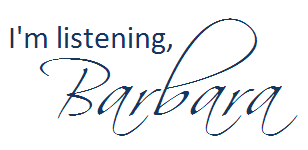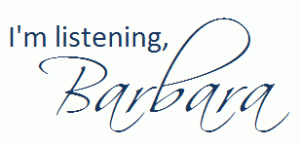Want to see what my COMM 2322 (PR Applications) students at Southeastern University are blogging? They’ve been assigned to create & maintain a blog using these guidelines. Most of them just started with their blogs this week; content will be added throughout the semester, so if there’s not much there yet, just wait . . . there will be plenty in a few weeks!
Poynter’s NewsU Classes for #PRCA3330 & #COMM4333
 For spring semester’s PR Writing courses that I’m teaching for Georgia Southern University and Southeastern University, I am augmenting my own content and our textbook with several courses offered by Poynter’s NewsU.
For spring semester’s PR Writing courses that I’m teaching for Georgia Southern University and Southeastern University, I am augmenting my own content and our textbook with several courses offered by Poynter’s NewsU.
Here are the courses we’ll be using:
- Cleaning Your Copy – for Week 3
- The Lead Lab – for Week 7
- The Language of the Image – for Week 11
- Writing for the Ear – for Week 12
- Five Steps to MultiMedia Storytelling – for Week 14
Each of the courses concludes with a quiz. Please have the quiz score come to my university e-mail account.
[UPDATE: Complete the NewsU quiz for the course by Saturday midnight during the week it’s assigned.]
Questions?
10 FAQs About My Online Courses at GSU
 [Updated with new links & info. Updates are in italics]
[Updated with new links & info. Updates are in italics]
As our semester begins at Georgia Southern, students are asking me questions via e-mail about our online classes. Rather than responding individually (so only one student can benefit), I’ve created a list of FAQs so that all can benefit.
1. How do I find out when things are due? (And will you make us a calendar for all the due dates?)
The quickest, easiest way to find out due dates for assignments is to look at the Calendar feature in GeorgiaVIEW. You can also find due dates for Assignments on the Assignments tab and RATS/quizzes on the Assessments tab. [NOTE: Blog posts are the exception. Weekly blog posts are due in most classes, and they will not appear on the GeorgiaVIEW Calendar.]
2. Why do we need a headset/mic? What kind should we buy?
For the times that we’re meeting online at the same time (synchronously), you will need to be able to hear what I am saying and occasionally respond by voice. You can find inexpensive ones at Amazon, OfficeMax or Walmart.
3. What’s expected in our blogs?
See the post I’ve written about blog content for your specific course:
- PRCA 3030: Social Media for PR
- PRCA 3330: PR Writing
- PRCA 3711/4711: PR Practicum
- FYE 1220: Making Connections
4. I will be out of town for a week. Will that impact my grade in this course?
Since our class is online, your engagement and participation will be evaluated by your continuous completion of assignments and blog posts. If you are out of town, just be sure that you are keeping up with due dates.
5. What’s the “Public Relations Matters” section on our GeorgiaVIEW home page for?
At the bottom of each page for our course in GeorgiaVIEW there is a section titled “Public Relations Matters.” What you will see there is an RSS feed of the last four blog posts that you find here on my blog. It’s just a quick and easy way for you to see what’s new on my blog.
6. When will we be meeting synchronously (online at the same time)?
The best answer I can give you for this is “on occasion.” Since we did not have a course time assigned in WINGS, it’s nearly impossible for us to find a time to meet at the same time. So what I will be doing is informing you when I will be online providing you information related to our course. If you can make it to GeorgiaVIEW/Wimba at that time, please do so. If you cannot (due to other courses or work), you’ll have the opportunity to view the “archive” (replay) of the session at a later time. When I schedule a synchronous session, I will always send a meeting notice to you via Google Calendar. Please either accept or decline the notice so I can know who will attend.
7. Can I use my Gmail (or other account) instead of my Georgia Southern account for e-mail?
For consistency and reliability, GeorgiaSouthern requires faculty members to use our university-provided e-mail accounts for communicating with students. What you may want to do is set up your Gmail to automatically fetch your GSU e-mail, so you’ll only have one place to look. (That’s what I do.)
8. How often should I check my e-mail?
Check your e-mail at least once a day, preferably more. For our class, I will not send you a same-day assignment; I don’t think that’s fair. But I do send occasional reminders or clarifications that could help you with assignments you are working on. I also typically will send a tweet (on Twitter) letting you know to check your e-mail.
9. How will you do your office hours?
You’ll be able to find me in a Wimba Live Classroom (found on your class’ GeorgiaVIEW home page) quite often throughout the week. My office hours are held in the room labeled Virtual Office for Prof. Nixon’s Virtual Office. When I am in there, you can ask questions via chat, audio or audio & video; I can respond using the same methods. I’ll have an office hours schedule ready during the second week of class.
10. My other professors haven’t used GeorgiaVIEW as much as you are using it. Can you show me how to use it?
GeorgiaSouthern has created several tutorials on using GeorgiaVIEW. Spend some time reviewing these tutorials; it will be worth the time you invest. I also created a short overview of how I use it. It’s best to ask another classmate first, then come to me if you have further questions on GeorgiaVIEW.
Do you have other questions?
Resume Package Assignment :: PRCA 3711/4711
Worth: 250 points
Create a professional-looking resume package as if you are applying for a specific position within a real company.
The draft of the package is due in GeorgiaVIEW on February 4 by midnight. Learn from the feedback you receive on the draft, make changes, and submit your final version no later than April 5 at midnight.
Use the advice in Job Search: A Delightful Dozen Posts I provide in this blog, as well as the vast amount of resume & cover letter advice in WinWay Resume Deluxe, when working on this assignment. You will find the Resume Auditor in WinWay Resume to be especially valuable for you, as it will help you catch common resume mistakes. (Disclosure: I created the Resume Auditor function for WinWay Resume.)
The package will contain:
- Job description or want ad from a specific company
- Cover letter written specifically for this position
- One-page resume, including the URL for your up-to-date LinkedIn profile
- Reference page created specifically for this position
NOTE 1: If you choose not to complete a draft of this assignment for feedback from me, the highest grade you will earn on the assignment is 200 points (of the 250 available).
NOTE 2: Typographical or grammatical errors will count off one letter grade each. It’s THAT important to be error-free in your resume package. (Some employers will not consider an applicant who includes errors in the application process.) Proofread your resume package yourself, and also have at least three other people proof it for you.
Importing Wimba Archives into iTunes
Would you rather listen to the archived recordings of our online class sessions in iTunes than through Wimba Live Classroom? Here’s how.
NOTE: When you import a Wimba archive into iTunes, you only get the audio. If you want the video, too, you’ll need to watch and listen in the Wimba Live Classroom instead.
T.O.W. :: Topics of the Week [PRCA 3330 and COMM 4333]
 In our PR Writing classes (PRCA 3330 at Georgia Southern University and COMM 4333 at Southeastern University), we’ll all blog about the same general topic each week during the semester. Your TOWs of 300 words or longer should be posted by Saturday at noon at the end of each week.
In our PR Writing classes (PRCA 3330 at Georgia Southern University and COMM 4333 at Southeastern University), we’ll all blog about the same general topic each week during the semester. Your TOWs of 300 words or longer should be posted by Saturday at noon at the end of each week.
Some weeks have more than one topic listed; choose one of the available topics on those weeks.
If you have a topic to suggest, please add it as a comment to this blog post.
If you are unsure how to get started writing these TOWs, many times you can use this three-pronged approach:
- What did you learn?
- What surprised you?
- What do you want to know more about?
WEEK ONE
No TOW required. But if you would like to go back and write one, write about which types of social media you currently participate in (such as blogging, podcasting, social networking, etc.), which platforms you use, and why.
WEEK TWO
- Visit Mignon Fogarty’s Grammar Girl’s website. Either read one of her blog posts or listen to one of her podcasts on an area of grammar that is troublesome to you. Write about what you learned (using the three-pronged approach above.)
WEEK THREE
- Why are comments such an integral part of blogs? What advice would you offer on writing effective blog comments?
WEEK FOUR
- Last week, you took the NewsU Cleaning Your Copy course. There were four main topics in this course: Grammar, AP Style, Punctuation and Spelling. Using the three-pronged approach described above, describe your reactions to this course. Remember to include a hyperlink to the course, too.
WEEK FIVE
- Which Super Bowl ad was either your favorite OR least favorite? And in your discussion of the ad, be sure to discuss the publics that were targeted in the ad. (Be sure your readers can tell if you liked or disliked the ad.) If you missed the ads during the big game, no worries. I embedded them all in my blog.
WEEK SIX
- What makes a story newsworthy?
WEEK SEVEN
WEEK EIGHT
- Last week, you took the NewsU The Lead Lab course. Using the three-pronged approach described above, describe your reactions to this course. Remember to include a hyperlink to the course, too.
WEEKS NINE & TEN
- Create a profile at PR OpenMic, a social network developed by Auburn University’s Robert French. Connect with me there as a friend so that I know you have joined. Then for your topic of the week, describe what PR OpenMic has to offer to PR students and recent grads. Be sure to discuss at least three or four things you encounter at the site, and provide hyperlinks to the specific areas in the site for your readers.
WEEK ELEVEN
- Address several of the following questions about infographics. What are they? How could one be useful in a story for your client? How do you go about creating one? Create one if you can, and embed it in your blog post this week.
WEEK 12
- Listen to at least one hour of PR/marketing podcasts (such as For Immediate Release, Inside PR, The Creative Career, Coming Up PR, Trafcom News or Marketing Over Coffee). Briefly summarize what you heard. Discuss how listening to PR podcasts can benefit PR students or new PR practitioners. (Optional: Also, write a short review of the podcast at iTunes.)
WEEK 13
- Working either alone or in a group of no more than three, create a list of at least 10 ways that PR people can sometimes drive journalists crazy. After each item on the list, indicate what the PR person could/should do instead. Hyperlink to sources as needed. (If you are working with others, each of you should post to his/her own blog, and note where else it is crossposted and who the co-authors are.)
WEEK 14
- During Week 14, you will take the Five Steps to MultiMedia Storytelling course at News University. Using the three-pronged approach described above, describe your reactions to this course. Remember to include a hyperlink to the course, too.
WEEK 15
- Just what is a “Social Media News Release”? When should a PR practitioner use a SMNR rather than (or perhaps in addition to) a “regular” news release? Be sure to include links to at least three websites/blogs that discuss SMNRs.
WEEK 16
- What advice would you offer PR students who are new to blogging? Come up with your own Top 10 list.
Blogging Guidelines for COMM 2322
 This post explains the types of content I expect you to write about in your blog for COMM 2322. Please add a category for each type (listed below), and make sure each post is categorized appropriately.
This post explains the types of content I expect you to write about in your blog for COMM 2322. Please add a category for each type (listed below), and make sure each post is categorized appropriately.
Please add a category for each type (listed below), and make sure each post is categorized appropriately. Each post for this class must have the category of “COMM 2322” along with at least one additional category. (If you do not categorize your posts with the name of the class, it will be much more difficult for me to find them.)
1. Reading notes – brief notes or key ideas from the reading assigned for that week’s class. Jot down 3-5 ideas that you believe are the most important & wish to remember. Be very brief, but write enough so someone who can’t read your mind understands what you mean and I am convinced that you actually did the readings. Remember to cite your source(s) when you paraphrase or quote materials from the readings; use a hyperlink to the book (either at the publisher’s site or at a bookseller like Amazon.com).
2. Topic of the Week – Together as a class, we will come up with a topic (or topics) each week for you to write about. You should have 15 of these before the end of the semester.
3. PR Connections – commentary, reflections and opinions about PR issues/examples that were not addressed in class. These can be responses to other PR blogs you read, links to interesting posts or articles, embedded YouTube videos, etc. You should write at least 10 of these during the semester.
4. Blog comments – whenever you comment on someone’s PR blog (whether it’s a PR professional or a PR student), add the comment to ONE post that you update throughout the semester so I can assess your online participation. Do this only for PR-related blogs. See Tracking Your Blog Comments for Nixon’s Classes for more information.
5. Personal – optional category. Use it for any posts not related to public relations.
You may add other categories and sub-categories of your choice. Please keep in mind that when I evaluate your blog I will pay special attention to the categories listed above, but I will not ignore other posts. I will perform a wholistic evaluation of your blog, looking for:
- professionalism: Clear, correct, thoughtful writing
- frequency: Sufficient posts in categories 1-3, posted throughout the semester. There will be at least four blog checkpoints during the semester.
- linking: Identify other PR blogs (use PR Open Mic or my blogroll in my Delicious bookmarks as starting points) and link to them. Respond to others’ posts. Become a part of the blogosphere. Blogging should not be lonely.
- readability: brief & concise writing style, use of white space, bold characters, images, bullet points
SUPER-IMPORTANT: In order for you to get credit for your blog, I need to know where it is. Tell me your blog address by completing this Google Form; do this no later than the end of January.
Questions? Just let me know.
NOTE: Many thanks to Dr. Mihaela Vorvoreanu at Purdue University, who allowed me to use her blogging guidelines from her PRinciples class. They were so well-written that I made just a few tweaks for my own class. Dr. V knows that Blogs Matter.
Trade Book Review & Slidecast :: PRCA 3030
 For my PRCA 3030 (Social Media for PR) Class
For my PRCA 3030 (Social Media for PR) Class
(If you are in my PRCA 3711/4711 class, see your Trade Book Review assignment on a different page of my blog.)
Due: March 10 by 11:59pm: Submit the link to your blog post with the embedded PowerPoint to the Assignments area in GeorgiaVIEW

NEW: See short video of me describing this assignment.
One of our assignments this semester is for you to read and review a trade book on public relations. In the left sidebar of this blog is a list of books for you to choose from. (You can also see this complete list at my Amazon.com Public Relations Trade Books page that I created for you.)
Your book review will take the form of a professional-looking PowerPoint presentation designed to be presented in 5-7 minutes. Rely more on images to tell your story than bullet points. (We’ll discuss more in class about how not to create a “Death by PowerPoint” slidedeck.) Record the audio of your presentation and sync it with the slides to create a slidecast (narrated PowerPoint); embed the slidecast in your blog. Put your notes for the presentation in the Notes panel in PowerPoint.
Your PPT presentation should include:
- Opening slide should include an image of the book’s cover, along with author & title of the book and your name
- Short bio of the author(s) of the book (perhaps with a photo of the author)
- What did you learn by reading this book?
- What surprised you in this book?
- What do you want to learn more about, now that this book has piqued your interest?
- Would you recommend other students to also read this book? Why or why not?
- Final slide: your contact information (photo optional)
Once you choose the book, reply with a comment to this blog post so that you can “claim” the book for yourself. I prefer that we have no more than four people in the class reviewing any one book. You should choose a book before the end of January so you have ample time to read it before the assignment due date.
Upload your book review to SlideShare and embed the slides in your blog. Indicate to your blog readers that if they visit Slideshare, they can see your notes on each slide there. Presentations that have no notes on the slides cannot earn more than 1/2 credit.
Optional:
- Record video of yourself delivering the presentation, upload it to YouTube, and embed the video in your blog.
- If you’re using Twitter, search for the authors of your book there and connect with them. You may be surprised how willing most of them are to reply to you when you @ them.
- Leave a comment about your thoughts on the book on the author’s blog.
Questions about this assignment?

NOTE: If you are in another of my classes with a similar Trade Book Review Assignment, you will need to review separate books for each class.
Trade Book Review Assignment :: PRCA 3711/4711
 For my PRCA 3711/4711 Students:
For my PRCA 3711/4711 Students:
(If you are in my PRCA 3030 class, see your Trade Book Review assignment on a different page of my blog.)
Due: March 2 by 11:59pm: Submit the link to your blog post with the embedded PowerPoint to the Assignments area in GeorgiaVIEW

One of our assignments this semester is for you to read and review a trade book on public relations. In the left sidebar of this blog is a list of books for you to choose from. (You can also see this complete list at my Amazon.com Public Relations Trade Books page that I created for you.)
Your book review will take the form of a professional-looking PowerPoint presentation designed to be presented in 5-7 minutes. Rely more on images to tell your story than bullet points. (We’ll discuss more in class about how not to create a “Death by PowerPoint” slidedeck.) Put your notes for the presentation in the Notes panel in PowerPoint.
Your PPT presentation should include:
- Opening slide should include an image of the book’s cover, along with author & title of the book and your name
- Short bio of the author(s) of the book (perhaps with a photo of the author)
- What did you learn by reading this book?
- What surprised you in this book?
- What do you want to learn more about, now that this book has piqued your interest?
- Would you recommend other students to also read this book? Why or why not?
- Final slide: your contact information (photo optional)
Once you choose the book, reply with a comment to this blog post so that you can “claim” the book for yourself. I prefer that we have no more than four people in the class reviewing any one book. You should choose a book before the end of January so you have ample time to read it before the assignment due date.
Upload your book review to SlideShare and embed the slides in your blog. Indicate to your blog readers that if they visit Slideshare, they can see your notes on each slide there. Presentations that have no notes on the slides cannot earn more than 1/2 credit.
Optional:
- Record the audio of your presentation and sync it with the slides to create a slidecast (narrated PowerPoint); embed the slidecast in your blog.
- Record video of yourself delivering the presentation, upload it to YouTube, and embed the video in your blog.
- If you’re using Twitter, search for the authors of your book there and connect with them. You may be surprised how willing most of them are to reply to you when you @ them.
- Leave a comment about your thoughts on the book on the author’s blog.
Questions about this assignment?

NOTE: If you are in another of my classes with a similar Trade Book Review Assignment, you will need to review separate books for each class.
T.O.W. :: [PRCA 3030] Topics of the Week
 In PRCA 3030 (Social Media for PR), we’ll all blog about the same general topic each week during the semester. Your TOWs should be posted by Saturday at noon at the end of each week.
In PRCA 3030 (Social Media for PR), we’ll all blog about the same general topic each week during the semester. Your TOWs should be posted by Saturday at noon at the end of each week.
Some weeks have more than one topic listed; choose one of the available topics on those weeks.
If you have a topic to suggest, please add it as a comment to this blog post.
If you are unsure how to get started writing these TOWs, many times you can use this three-pronged approach:
- What did you learn?
- What surprised you?
- What do you want to know more about?
WEEK ONE
No TOW required. But if you would like to write one, write about which types of social media you currently participate in (such as blogging, podcasting, social networking, etc.), which platforms you use, and why.
WEEK TWO
- How was/is social media being used in the Haitian earthquake crisis, especially by the American Red Cross?
- Why are comments such an integral part of blogs? What advice would you offer on writing effective blog comments?
WEEK THREE
Is social media monitoring ethical? Provide commentary and discussion on both sides of the issue, and offer your personal viewpoint.
WEEK FOUR
Adam Vincenzini asked on Twitter and on his blog for people to share their definitions of “social media” with him, in 140 characters or fewer. Read through the list of definitions that were shared with Adam. Pick a few that resonate with you and discuss why these definitions “work” for you. Develop your OWN 140-character definition of social media.
WEEK FIVE
After reading Search Engine Visibility, an Edelman Insights paper by Steve Rubel and others at Edelman Digital, react to it using the three-pronged approach (discussed earlier in this blog post).
WEEK SIX
“Social Media: Friend or Foe?” :: Listen to Shel Holtz, Mark Ragan and others discuss “concerns and objections around the adoption of social media communication channel.”
WEEK SEVEN
What is this Foursquare thing that we keep seeing in our Twitterstreams? How could companies benefit from it? And what are some of the potential dangers of using Foursquare (and other location-based services) for individual participants?
WEEK EIGHT
Since our focus for this week is podcasting, write this week’s TOW on something related to podcasting. Potential areas for discussion include: what would drive an organization to choose a podcast as a way of connecting with its publics, the importance of shownotes, technology you can use for podcasting or how PR majors can benefit from listening to PR podcasts.
WEEKS NINE & TEN
Create a profile at PR OpenMic, a social network developed by Auburn University’s Robert French. Connect with me there as a friend so that I know you have joined (do this before Spring Break). Then for your topic of the week, describe what PR OpenMic has to offer to PR students and recent grads. Be sure to discuss at least three or four things you encounter at the site, and provide hyperlinks to the specific areas in the site for your readers.
WEEK ELEVEN
Watch my interview with Martin Waxman. Use the three-pronged approach to react to the interview. What does Martin have to say about the need for traditional PR skills?
OR
Set up an account at Delicious, a social bookmarking site. Create social bookmarks to at least 20 sites; these could include classmates’ blogs, PR blogs, Georgia Southern University, your favorite musical artist or actor, etc. In your Topic of the Week, share a link to your Delicious account. Discuss how college students (especially those working in groups) could benefit from social bookmarks. Be sure to include a link to your Delicious bookmarks in your blog post. Optional: how could an association, like the Georgia Communication Association or the International Listening Association, use social bookmarks to benefit its members?
WEEK 12
Watch my interview with Kneale Mann. Use the three-pronged approach to react to the interview.
OR
One of this week’s readings concerned widgets and badges. After briefly describing the difference between a widget and a badge, offer suggestions on how one specific organization you are a part of (or wish to become a part of) could benefit from using widgets or badges.
WEEK 13
Just what is it that makes a simple little video like “David After Dentist” become a Viral Video? Also, share links to (or embed) at least two of your favorite videos that went viral.
WEEK 14
This week’s topic was inspired by Adam Vincenzini’s Be My Guest month: post something by a guest blogger. Connect with another blogger (it can, but doesn’t have to, be someone in your class) and exchange blog posts for the week. (You don’t have to write something new . . . share your favorite post you’ve written this semester.) In your own blog, make it really clear that the post is written by another person, and link to your guest’s blog.
WEEK 15
Be My Guest Part 2: Post something from a different guest blogger. (See Week 14)
WEEK 16
{TBA}


